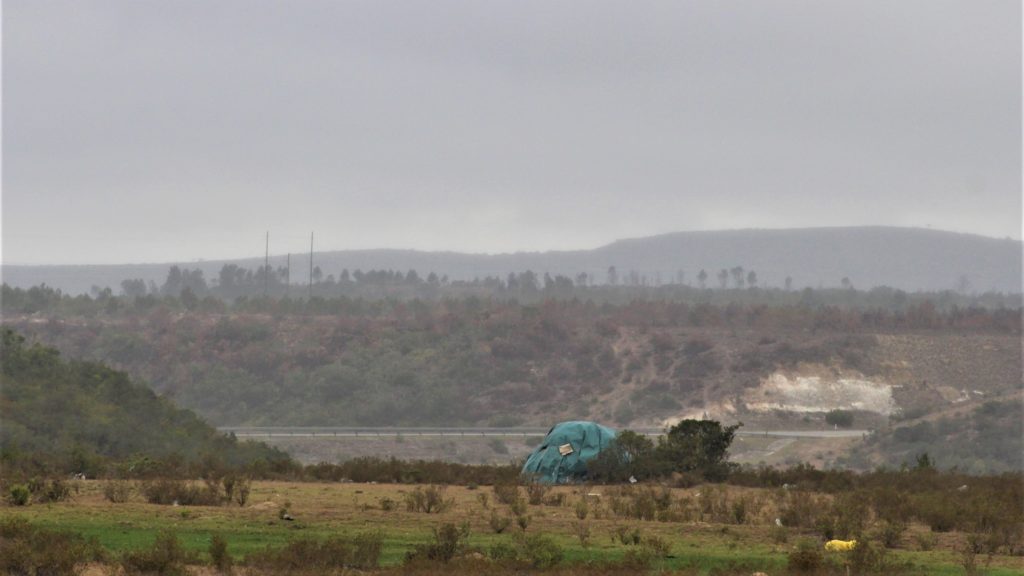“We’re happy when we are counted among those areas that are incident free when it comes to initiation,” said Local Initiation Forum co-ordinator Ramie Xonxa. The country was horrified at the deaths of 23 initiates in other parts of the Eastern Cape during December and Grocott’s Mail asked the councillor about the welfare of local abakhwetha.
Xonxa confirmed this week that all but one of the initiates were back home and that no injuries or deaths were reported among the 364 boys undergoing traditional initiation in Makana Municipality during the December 2019 initiation season.
The Portfolio Committee on Cooperative Governance and Traditional Affairs (CoGTA) called for an investigation into the deaths of the boys in eNgcobo and Komani. Shocking news from other parts of the Eastern Cape, along with the 23 deaths, was the appearance in Komga Magistrate’s Court last month of 14 boys following the alleged murder of a 16-year-old fellow initiate.
In response to the deaths, Eastern Cape Premier Oscar Mabuyane led a team that included Health Minister Zweli Mkhize and MEC Sindiswa Gomba to visit initiation schools in Komani and eNgcobo. Afterwards, News24 reported that Mkhize attributed most of the deaths to dehydration as a result of the cultural practice of restricting water consumption among initiates. Weather statistics for Queenstown (Komani) show temperatures during December this year of 30C and above on most days, with seven days between 35C and 38C.
“From our side [i.e. Makana Municipality’s Local Initiation Forum] it’s still fine,” Xonxa told Grocott’s Mail in December. This week he confirmed that all but one of the amakrwala were back home, and that the status of no reported deaths or injuries remained the same.
“There’s only one initiate left,” Xonxa told Grocott’s Mail on Wednesday 8 January. “He arrived late and will be returning home on 18 January.”
The Forum intervened in an incident in December to prevent fighting. A delegation of parents and police went to the eGolfini initiation site east of Vukani, where there had been conflict among a group of initiates.
“There was a misunderstanding among some of the initiates and they were about to fight,” Xonxa told Grocott’s Mail. “But one parent got wind of it and quickly went to the police station to report it. SAPS immediately dispatched a van.
“We called the initiates together to meet with the police and their parents and told them we don’t want any fighting there. It was resolved quickly.
“Whenever there’s a problem at any of the initiation sites, we quickly go there.”
Xonxa has previously attributed this municipality’s record of incident-free initiation to strong involvement by parents and guardians throughout the process.
Xonxa said of the 364 abakhwetha being monitored by the Makana Local Initiation Forum during this season, no health problems had been reported.
There will be a workshop at 9am on 17 January at Noluthando Hall for all amaKrwala (initiation graduates), where church representatives will talk to them about behaviour and society’s expectations of them.
Health screening
Grocott’s Mail reported last year that the Department of Health had introduced new rules for omiselwe ulwaluko – those who intend undergoing initiation. These included a compulsory health check at their local clinic during the September school holidays.
Initiation co-ordinator for the Department Makhi Mka said at the time this was in addition to the stipulations of the Customary Male Initiation Practice Act, including that boys must be 18, must register at their local clinic and must submit there to a full health screening before they are allowed to enrol at a circumcision school.
“Now they must also receive a full health screening at the clinic three months ahead of the initiation season,” Mka told Grocott’s Mail. This was to detect early signs of illness.
There are six initiation schools in Makhanda, and 13 in total including the surrounding areas of Alicedale, Fort Brown, Coombs, Seven Fountains, Salem, Riebeeck East and Radway Farm.
Training for traditional surgeons and nurses in the Department of Health’s Grahamstown District (Makana and Ndlambe) was conducted in Port Alfred in October and 30 traditional surgeons – 15 each from Makana and Ndlambe – received additional training there.
As per the Act, the safety and wellbeing of initiates is managed within local municipalities. In Makana Municipality the Local Initiation Forum is chaired by Ward 2 Councillor Ramie Xonxa, who every year draws together local representatives of the departments of Education, Social Development, Sports, Recreation, Arts and Culture, Home Affairs, the South African Police and NGOs.
The forum visits initiation schools in the municipal area ahead of the season, and monitors them while the initiates are in the bush.
The Portfolio Committee on Cooperative Governance and Traditional Affairs (CoGTA) condemned the death of the 23 boys in eNgcobo and Komani.
Committee Chairperson Faith Muthambi said at the time, “This could have been avoided if traditional practices such as water restrictions to initiates before and after the initiation can be reviewed from time to time to ensure that if they threaten the lives of the initiates in the fast changing weather conditions, they are discontinued.”
The committee also called on the National House of Traditional Leaders (NHTL) to investigate the death of the initiates and urged the NHTL to come up with solutions on how to continue with the tradition of initiation in the changing climatic and weather conditions, to ensure that no lives are lost in the future. – Additional reporting from SA News



